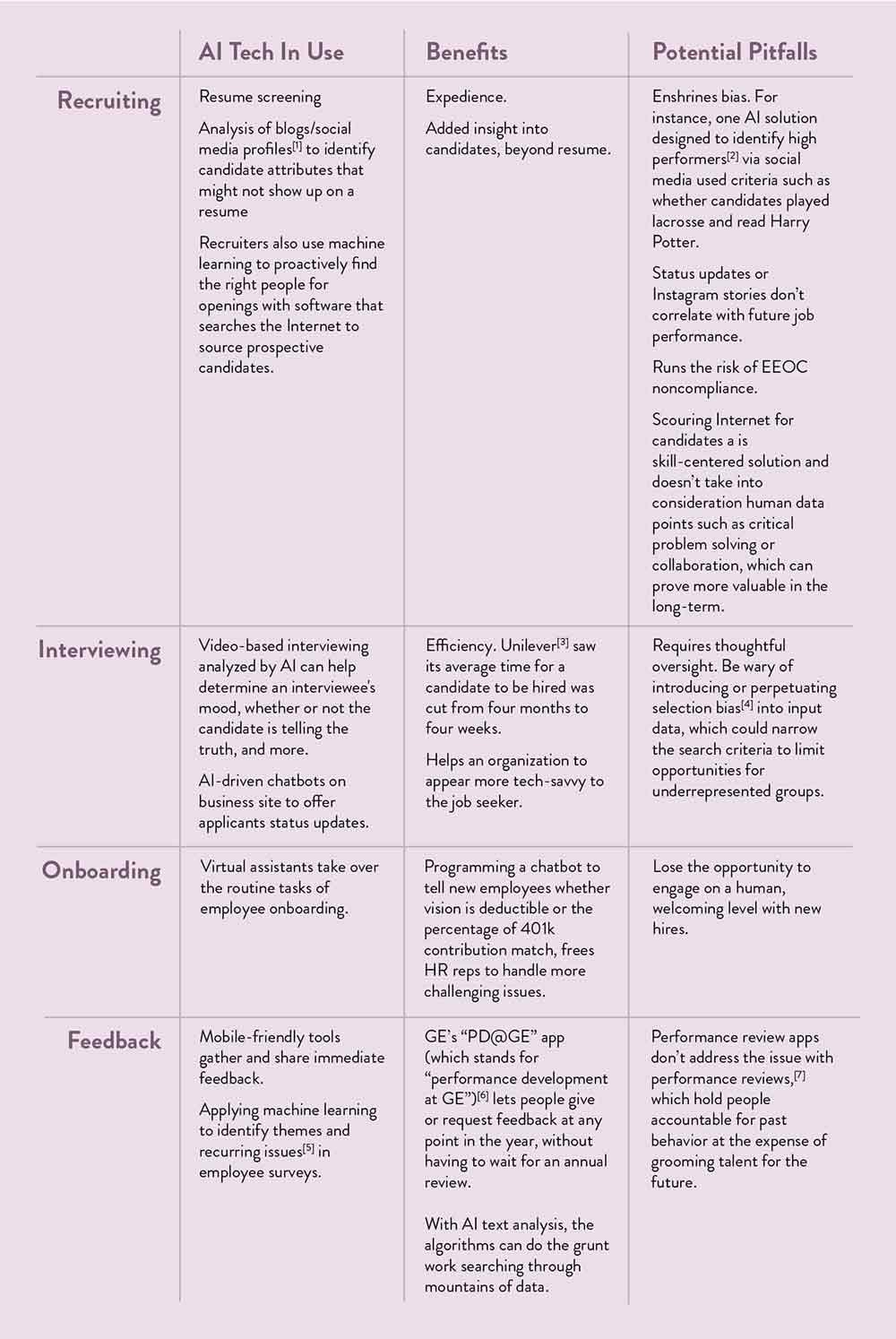How Will AI Change the Way Businesses Attract, Retain and Engage Employees?
Part Four of Our "Talent and the Future of Work" Series.
IBM’S artificial intelligence (AI) solution, Watson, is a Jeopardy! champion and has appeared in Super Bowl commercials. Google and Amazon offer AI assistance in a growing number of households. So, it’s no surprise, talent recruitment professionals are turning to AI and machine learning to future proof their hiring practices. Integrating automated intelligence can streamline processes and save time and money, yet without direct human involvement (this is called human-in-the-loop machine learning), these solutions can replicate human bias.
AI is poised to impact the entire employee lifecycle. A stretched HR professional, swamped with resumes and trying to schedule interviews and still trying to meet the needs of current employees and engage in strategic workforce planning, can turn to AI to handle the more routine tasks. With software solutions processing information efficiently and without tiring — not something we can often say about humans — the advantages are obvious.
This technology will change how you recruit, your strategy for encouraging employee learning and development, and also your performance management and coaching. It already is. Nevertheless, AI is only as good as the data it analyzes.
38% of enterprises are already using AI in their workplace with 62% expecting to use it by 2018.
—Deloitte Human Capital Trends
AI Automation in TA and HR Practices
Currently AI and machine learning applications in our industry make a difference in recruiting, interviewing, onboarding, and keeping up with employees once they’re hired. Despite the advances with AI, there remains a lot of work to do.

[1] Quartz at Work, "AI is the future of hiring, but it's far from immune to bias"
[2] Human Resource Executive, "In the Fight Against Bias, AI Faces Backlash"
[3] Business Insider, "Consumer-goods giant Unilever has been hiring employees using brain games and artificial intelligence - and it's a huge success"
[4] Quartz at Work, "AI is the future of hiring, but it's far from immune to bias"
[5] SHRM, "Artificial Intelligence and Employee Feedback"
[6] Quartz, "Why GE had to kill its annual performance reviews after more than three decades"
[7] Harvard Business Review, "The Performance Management Revolution"
Putting the Human in Human Resources
Thus, while AI and machine learning applications may make the talent professional’s job easier, they don’t help make hiring reliable or predictive. Automated resume screening perpetuating resume bias can undermine efforts to become more inclusive. Programming machine learning to automate inconsistent processes only saves time and resources in the short-term — high turnover or hiring low performers is costly in the long-term. In short, AI isn’t addressing current problems or pitfalls in the hiring process — it’s just perpetuating them.
Yes, AI offers a level of scalability and efficiency, but the real gift of AI technology comes from expert augmentation. Success comes from streamlining practices to marry technological progress with the human element of talent acquisition, hiring practices, and human resources outreach. Our professionals must proceed with care. Next, we’ll discuss the essential differences between automation and expert augmentation (which offers accuracy and helps you better plan for future talent needs). Hint: Augmented AI is what Plum offers, so keep reading!